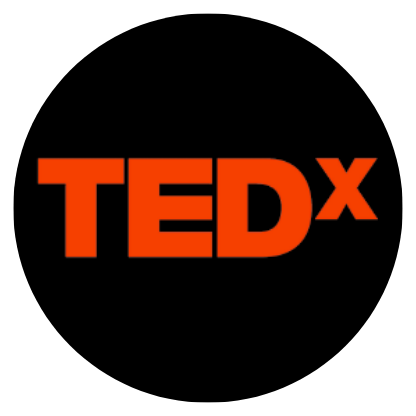Discover how 90% of mentored young people become mentors themselves by watching this video on the Science of Mentorship with Shawn Blanchard.
Shawn Blanchard explores the science of mentorship in his TEDxMuskegon talk. He defines mentorship as being influenced by individuals, ideals, and society, from the moment you open your eyes in the world until you close them. Blanchard explains the three phases of mentorship: unconscious, informal, and formal. He shares how he was influenced from a young age by a lack of guidance in his life, before eventually meeting his high school counselor, Miss Champion Hautboy, who believed in him and opened his eyes to a world of possibilities. Blanchard emphasizes the importance of formal mentorship, advocating for mentors to push their mentees to excel, and for mentees to hold themselves accountable.
Learning Outline
1. Mentorship is an influence from individuals, ideals, and society that is present from birth to death.
2. Unconscious mentorship is when a person is given a preset menu of examples, good and bad, that influence their actions.
3. Informal mentorship is when a person can choose their own influences such as friends, books, movies, and websites.
4. Formal mentorship is when a person is given direction, accountability, and support to reach their goals.
5. Playing catch is an example of formal mentorship, in which the mentor throws a ball (question) and the mentee must go and get it (answer).
6. Sponsors are mentors who believe in more than a person’s potential and will make their name synonymous to the mentee.
Instructional Content
The Science of Mentorship, presented by Shawn Blanchard, is a TEDxMuskegon talk that dives into the world of mentorship and how it has the power to shape our lives. In the video, Shawn talks about the three phases of mentorship: unconscious, informal, and formal. Unconscious mentorship consists of the lessons and examples we are exposed to when we are young, such as positive or negative influences from our parents, teachers, and mentors. Informal mentorship includes the people we choose to surround ourselves with, such as friends and family, as well as the books, movies, and other media we consume. Finally, formal mentorship involves having someone who is willing to guide us, hold us accountable, and introduce us to new opportunities. Shawn also shares his personal story of how an influential counselor changed his life and helped him to pursue his dreams.
The Science of Mentorship is an important reminder that we all have the potential to be mentors, as well as the power to be mentored. By developing the skills to be a mentor and seeking out the right mentors for ourselves, we can make a lasting impact on our lives and the lives of those around us. This video is a must-watch for anyone looking to gain a better understanding of the importance of mentorship and how to use it to its full potential.
Management
Training and development, personal growth, and coaching are all essential aspects of successful management. Effective management requires an understanding of the key principles of each of these elements and how they can be applied to an individual or team.
Training and development involves the use of structured programs or courses to help improve the skills and performance of a particular individual or team. This can include courses on problem-solving, communication, leadership, team building, and more. Training and development programs should be tailored to the individual or team in order to ensure maximum effectiveness.
Personal growth involves the development of skills and knowledge through learning, practice, and reflection. This can include reading, taking classes, attending seminars, and more. It is important to set realistic goals and objectives in order to ensure progress and success.
Coaching involves providing guidance and advice to help individuals and teams reach their goals. This includes providing feedback and support, helping to identify areas of improvement, and providing resources and tools to help individuals and teams reach their goals.
In the context of skills development, it is important to understand the principles of each of these elements and how they can be applied to improve management. Training and development should focus on targeted skills and objectives, and should be tailored to the individual or team. Personal growth should focus on developing skills and knowledge, and should be tailored to the individual or team. Coaching should focus on providing guidance and advice to help individuals and teams reach their goals.
In order to ensure success, it is important to have a comprehensive approach to improving management skills. By taking into account the various elements of training and development, personal growth, and coaching, it is possible to create a successful program that will help to improve the management skills of individuals and teams.
Training and Development
Mentorship is an important tool for upskilling and promoting personal growth and professional development. As Shawn Blanchard points out in his TEDxMuskegon talk, mentorship has never been clearly defined, but it can be an invaluable resource for both mentees and mentors alike. Studies show that 90% of people who are mentored when they are young become mentors themselves.
In his talk, Blanchard outlines three phases of mentorship: unconscious, informal, and formal. Unconscious mentorship is the preset menu of values, beliefs, and behaviors we are exposed to as we are growing up. Informal mentorship is the a la carte menu of values, beliefs, and behaviors we choose to observe from those in our lives, such as our friends, what we watch, and what we read. Formal mentorship is when we have someone to hold us accountable, such as a director who gives us directions and a sponsor who believes in our potential and opens doors for us.
Mentorship is an invaluable resource for personal growth and professional development. It helps us to learn more about ourselves and to develop the skills and knowledge necessary to be successful. It is important to seek out mentors and to be open to learning from them in order to maximize our potential. By taking advantage of the opportunities available to us through mentorship, we can reach our goals and achieve success.
Personal Growth
Mentorship is an invaluable tool in the pursuit of personal growth and professional development. A key factor in successful mentoring is the ability to identify mentors who can provide guidance and support on your journey to success. In Shawn Blanchard’s TEDx Talk “Science of Mentorship”, he shares his personal story of mentorship, highlighting the three key phases of mentorship: unconscious, informal, and formal.
Unconscious mentorship occurs when examples, both good and bad, are presented to us from birth. We learn what to do and what not to do from our family, peers, and society. It is important to recognize the influences on our lives and to be aware of what we are taking in.
Informal mentorship is the next phase and involves making conscious choices about the mentors and influences in our lives. We can choose who we spend time with, the books we read, and the movies we watch. This can all help shape our understanding of our own identity and goals.
Formal mentorship is the final phase and involves finding mentors who can provide guidance and support as we strive to reach our goals. This can come in the form of examples, directors, and sponsors. Examples provide inspiration and motivation to reach our goals, directors give us the direction and resources to reach those goals, and sponsors believe in us and open doors to further our success.
Mentorship is a powerful tool that can help us reach our personal and professional goals. By recognizing the three phases of mentorship, we can learn how to identify and leverage the right mentors to help us unlock our potential and achieve success.
Coaching
Mentorship can be a powerful tool for upskilling and personal growth. As Shawn Blanchard explains in his TEDxMuskegon talk, mentorship is “to be influenced by individuals, ideals and society”. With formal and informal mentorship, we can access the insight and knowledge of others, and reach for anything we desire.
Statistics show that 90% of people who are mentored when young become mentors themselves. Having a mentor, either formal or informal, allows us to identify and learn from someone who has achieved success in an area of interest. With an informal mentor, we can learn from a friend or observe someone we admire and use their examples to inform our decisions. Alternatively, formal mentorship requires us to take an active role in finding and building relationships with mentors, who will help us reach our goals.
Case in point, Shawn Blanchard was influenced by his high school counselor, Miss Champion Hautboy, and went on to graduate from the University of Michigan. As a mentor, she believed in his potential and helped him to develop the skills and knowledge to reach his goals. This is an example of how mentorship, even in its most basic form, can have a lasting impact on our lives.
Mentorship is an important tool for upskilling and personal growth. By connecting with mentors, formal or informal, we can access the knowledge and experience of others and use it to reach for anything we desire. With the right mentor, we can build beneficial relationships that will help us to develop and grow.
For Learners
Watching this video and learning the content of this video will have a positive benefit for anyone interested in improving their mentorship skills. The video explains what mentorship is, how it works, and how to effectively activate it. The speaker, Shawn Blanchard, uses real-life examples to explain the concept of mentorship, making it easier to understand and relate to. Additionally, he provides strategies on how to effectively practice mentorship, such as the ‘playing catch’ analogy. This video provides the opportunity to learn how to become the mentor and the mentee, which can be beneficial for personal and professional growth.
On the other hand, not learning the content of this video will have a negative detriment to anyone interested in improving their mentorship skills. Without the knowledge of what mentorship is, how it works, and how to effectively activate it, a person’s ability to become an effective mentor or mentee is hindered. Additionally, a person won’t know how to properly implement the ‘playing catch’ analogy, which is a key component to successful mentorship.
Using the ‘what’s in it for me’, ‘what’s in it for them’, ‘what’s in it for us’, and ‘what’s in it for the world’ approach to learning the content of this video will benefit you as a learner for personal growth and professional development. For you, you will gain knowledge and understanding on how to become an effective mentor and mentee, which will help you in your personal and professional life. For them, you will be able to provide guidance and support to help them reach their goals, and create a positive and encouraging environment. For us, we will have a community of educated and knowledgeable mentors and mentees, which can help build a better society. For the world, we can create a chain reaction of mentorship, where 90% of those being mentored become mentors themselves. This approach can help create a better world, and make a lasting impact.
For Employers
Mentorship is a powerful tool for employers to understand and use for the benefit of their team, customers and clients. The Science of Mentorship video by Shawn Blanchard is an invaluable tool for employers to learn from in order to differentiate their company from their competitors and be successful in their industry.
In the video, Shawn explains three phases of mentorship: unconscious, informal, and formal mentorship. He explains how unconscious mentorship is like a preset menu; you don’t choose the plates that are on it, they are given to you. He also explains how informal mentorship works, with its “a la carte” menu, where you get to choose what influences you. Finally, he explains how to engage in formal mentorship, with its three different levels: examples, directors, and sponsors.
By learning the content of this video, employers will benefit in the present, past, and future. In the present, employers can use the video's content to mentor staff, build trust and relationships with customers, and gain a better understanding of their industry. In the past, employers will be able to look back on their mistakes and successes with a newfound understanding. Finally, in the future, employers will be able to better prepare themselves for success in the future by taking the knowledge from this video and applying it in their everyday business.
It is important for employers to understand the Science of Mentorship and its importance in order to be successful. By understanding the principles of mentorship, employers can differentiate their team from their competitors, build better relationships with customers, and have a greater understanding of the industry. Employers can benefit in the present, past and future by learning the content of this video.
Career Path
Completing a course in Management based on the competencies of Training and Development, Personal Growth, and Coaching can help you close the Skills Gap and ultimately enable you to become more employable, promotable, and purposeful in your career path. With this knowledge, you can become an invaluable asset for employers who are looking for individuals with the skills to grow and develop their business in high growth industries.
Leveling up by watching Science of Mentorship | Shawn Blanchard | TEDxMuskegon and reading the transcript can help you understand the power of mentorship and how it can help you reach your goals. It can also provide you with the necessary skills and knowledge to become a better mentor yourself. By having strong mentors, you can learn the necessary skills to become more employable, promotable, and purposeful in your career path.
You can also gain enhanced income-producing skills by completing a course in Management based on the competencies of Training and Development, Personal Growth, and Coaching. This will help you to become more prepared for the challenges and opportunities that come with working in a high demand, high growth industry. With this knowledge, you can become a valuable asset to employers who are looking for individuals with the skillsets to increase their business’s success.
By taking the time to watch the Science of Mentorship | Shawn Blanchard | TEDxMuskegon video and reading the transcript, you can gain a better understanding of the power of mentorship and how it can help you reach your goals. This will also help you become a better mentor yourself and can ultimately help you become more employable, promotable, and purposeful in your career path.
Meaning
"If you've seen further it's because you've been standing on the shoulders of giants" is a famous quote by Sir Isaac Newton. This phrase encapsulates the importance of mentorship explored in Shawn Blanchard's TEDx Talk "Science of Mentorship". Blanchard explains how mentorship is crucial for a person's development and success. Mentorship provides learners with an opportunity to gain knowledge from the experience of others, and to find support in the workplace. For employers, mentorship can be a powerful tool for developing and encouraging employees, and can even lead to increased productivity and job satisfaction.
In Blanchard's talk he outlines the three phases of mentorship: unconscious mentorship, informal mentorship, and formal mentorship. Unconscious mentorship is the influence that a person's environment and people surrounding them have on them. Informal mentorship involves gaining knowledge from people and activities around you, such as friends, books, and movies. Finally, formal mentorship is the support of a mentor who has the experience and knowledge to help guide the learner and hold them accountable.
Mentorship is a key factor in personal growth and success. The quote by Sir Isaac Newton, "If you've seen further it's because you've been standing on the shoulders of giants" emphasizes the importance of learning from the experience of others and recognizing the influence of mentors in our lives.
Takeaway
Mentorship is an invaluable tool for growth and development, but it must be consciously chosen and nurtured. It can take the form of informal guidance from friends, family, and peers, or formal relationships with directors and sponsors. Understanding the power of mentorship and finding the right mentors is key to reaching our full potential.










 9 Creds - Management
9 Creds - Management



